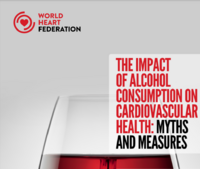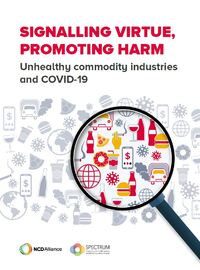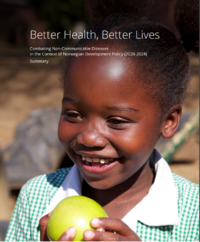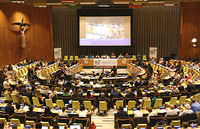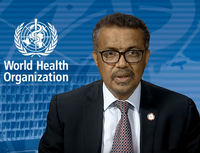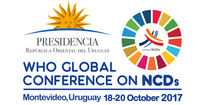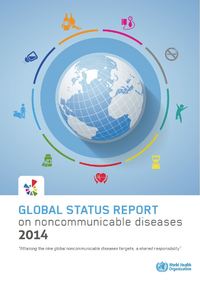Alcohol and Non-communicable diseases (NCD)
In 2011 the United Nations High Level Meeting on NCDs demonstrated a global consensus around the need to develop and implement prevention strategies and control the disease burden related to alcohol and three other major health-risk factors: tobacco, unhealthy foods, and lack of physical exercise. The four disease categories addressed by the UN’s NCD initiative include cancer, cardiovascular disease, chronic lung disease, and diabetes. Although NCDs are commonly perceived as problems of more wealthy countries, a significant portion of the disease burden from NCDs actually occurs in low- and middle-income countries.
Policy brief from the World Heart Federation
Disproving the myths of alcohol and cardiovascular health
In a new policy brief, the World Heart Federation (WHF) is challenging the widespread notion that drinking moderate amounts of alcohol can decrease the risk of heart disease, and calling for urgent and decisive action to tackle the unprecedented rise in alcohol-related death and disability worldwide.
New report exposes unhealthy industry responses to COVID-19
The report, ‘Signalling Virtue, Promoting Harm’ released recently provides ample examples of how unhealthy commodity industries, alcohol included, have leveraged COVID-19 for commercial gain.
Norway launches strategy to combat Non-communicable Diseases
As the first country in the world, Norway launches a strategy to combat Non-communicable Diseases (NCDs) in low-income countries as part of Norway's development aid. The government's new strategy focuses on important target areas and effective measures. Now the strategy must be operationalised and put into action.
New article published
A call for the implementation of cost effective alcohol interventions
We have effective strategies to reduce harmful use of alcohol. Now they must be implemented, says a recent article in The BMJ written by Dag Rekve and colleagues. The article reviews the lack of, and barriers to, implementation of evidence-based cost effective interventions, especially in low and middle income countries.
FORUT Norway:
UN High-Level Meeting on NCDs misses the target
“We are quite concerned by the lack of progress in addressing the NCDs and their risk factors, including alcohol, in a serious way, comments FORUT after the closing of the United Nations High-Level Meeting on NCDs in New York.
Over 190 civil society organisations in joint statement:
Bolder actions needed to reverse the tide of NCDs and mental disorders
All evidence points to the same unpleasant reality: that if the current pace of progress continues unabated, by 2030 the agreed Sustainable Development Goal (SDG) target to reduce NCD mortality will remain a distant reality. This is the opinion of more than 190 CSOs that have sent a statement to WHO.
New WHO Director-General:
Points at alcohol and tobacco control to combat non-communicable diseases
«Much of suffering because of non-communicable diseases can be avoided by doing a better job in prevention and treatment. But this requires political commitment in the highest political places, says WHO’s new Director-General and points at alcohol and tobacco control as areas of priority.
Civil society networks call for stronger action against non-communicable diseases
The Montevideo Roadmap is weak on addressing alcohol as a risk factor for non-communicable diseases, comment three large global NGO networks. They all recommend increased use of fiscal measures like alcohol taxation to reduce the burden of non-communicable diseases.
New NCD report:
Number of premature and avoidable NCD deaths on the rise
World Health Organization (WHO) has released a new Global Status Report on Nonommunicable Diseases (NCDs). The report states that most premature NCD deaths are preventable. Of the 38 million lives lost to NCDs in 2012, 16 million or 42% were premature and avoidable – up from 14.6 million in 2000.
New cancer code:
Alcohol use a significant cancer risk factor
The International Agency for Research on Cancer and the European Commission has released an updated 4th edition of the European Code Against Cancer. The Code points at alcohol use as one of the significant risk factors. Still public awareness around this link is alarmingly low.
